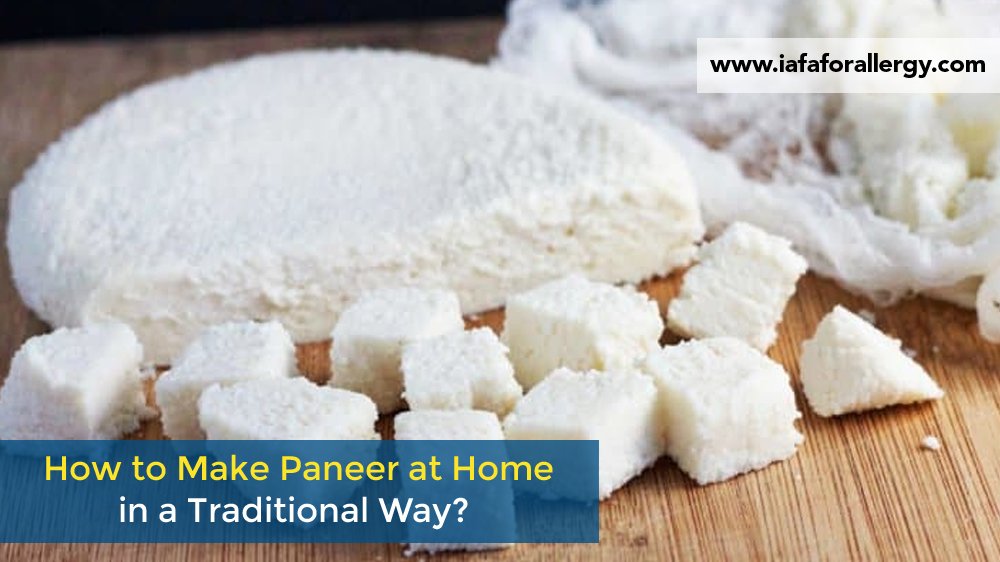Paneer is a commonly found ingredient in Indian dishes. It is well known for its Vata dosha balancing properties and weight gain. Paneer is packed with proteins and fat which helps in the build-up of body muscle. But Ayurveda strictly recommends having paneer which is made at home and by using natural A2 cow milk. But, you may doubt how you can get the exact paneer that is available in the market. That’s why we have come up with an article giving you a clear eye for the preparation of paneer at home by using A2 milk and without getting out of the roots of Ayurveda.
A Stepwise Guide for the Preparation of Paneer
Ingredients:
- Natural A2 cow milk
- An earthen pot
- Muslin cloth or cheesecloth
- Lemon or Vinegar
Making Process:
1. Take natural A2 milk in an earthen pot and boil it to get optimally heated.
Read – Traditional Ayurvedic Method (Correct Way) to Boil Milk in An Earthen Pot
2. Once boiling is done, turn off the flame. Now add lemon drops or vinegar juice whichever is available to you for curdling of the milk.
Note: You can also curdle by using buttermilk. But by using lemon or vinegar curdling becomes quick.
3. You have to continue adding lemon until you observe the solid articles of milk getting separated.
Note: Here, you have to stop adding lemon or vinegar.
4. Take out the earthen pot and strain the milk using a muslin cloth or a cheesecloth and collect all the liquid. Perfectly strain the milk leaving no moisture in the paneer.
5. Now, keep the collected paneer aside by putting some weight on it overnight.
6. The next morning, spread the dried paneer flat and cut the paneer into slices.
7. Natural, delicious, and healthy paneer is ready to serve and make dishes.
Synonyms of Paneer:
Rishyagandha, Paneer Ilai Cheek, Paneer Pool.
Ayurvedic Benefits of Consuming Paneer
- Paneer is loaded with proteins and fat, so anyone who’s thinking of gaining weight can include paneer in their daily diet.
- Paneer is good at balancing dishes, especially Vata dosha. So, anyone suffering from joint pains due to an imbalance of Vata dosha can start consuming a sufficient amount of paneer.
- Ayurveda considers paneer as Guru which is heavy to digest. So, it can be taken in the mornings and afternoons and one should avoid consuming it at night.
Who Should Avoid Consuming Paneer?
- If your goal is to shed some pounds off your body, avoid consuming it. If you can’t avoid it completely, at least limit the amount you take.
- Those who have indigestion issues should avoid it, as it is heavy to digest.
- Those who have cardiac and hyperlipidemia should avoid eating paneer.
- Paneer is heavy to digest, always one should consume a well-cooked one, not raw paneer.
A Quick Wrap-Up
Ayurveda always encourages one to have good and healthy food which is full of essential nutrients and vital vitamins. Paneer is known as Rishyagandha in Sanskrit. It’s full of proteins that help to put on some body mass. Even though raw paneer is hard to digest, it is not a well-cooked one. So, having paneer in moderation is good for health.
As the process we mentioned above is of a traditional way and also by using A2 milk, you need to worry about allergic issues or milk intolerance issues. And IAFA’s mission is to make people’s lives healthier and happier with the use of ancient Ayurveda. At IAFA Dr. Sahil Gupta not only gives holistic Ayurvedic therapy but also suggests one living an ayurvedic way of life by including an ayurvedic diet. If you are suffering from any kinds of allergies or other health issues, book an online consultation now. We are the reason behind 50000+ happy and healthier patients worldwide. We would like to be a part of your health journey too.








